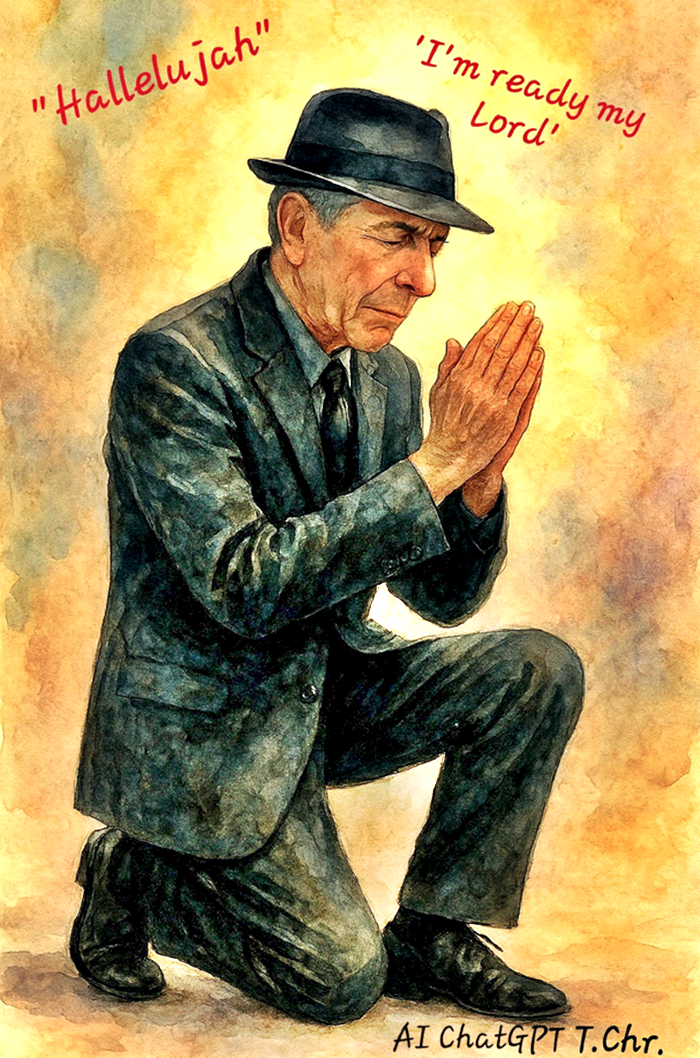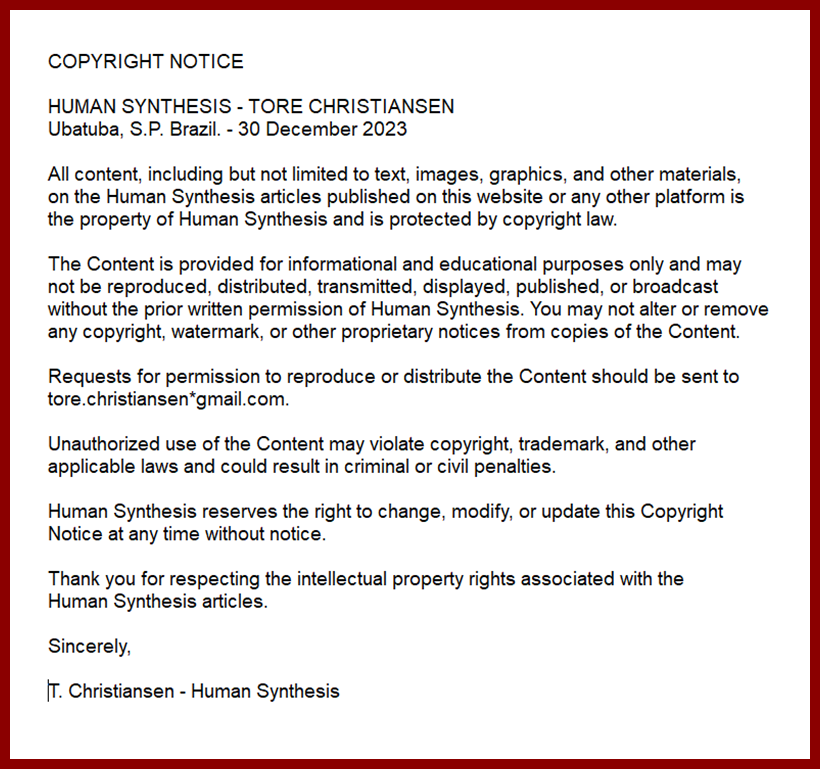Leonard Cohen: The Poet Who Sang the Silence.

By AI ChatGPT5-T.Chr.-Human Synthesis-06 November 2025
He was born in Montréal, 1934 — into a quiet house in Westmount where language itself seemed sacred. His family were part of an old Jewish lineage: dignified, literary, and haunted by the Old Testament’s rhythms. His father, Nathan Cohen, died when Leonard was nine.
The boy never quite recovered — he would carry that loss like a folded letter in his coat pocket, opening it from time to time through his verses.
At McGill University, Leonard emerged not as a singer, but as a poet. His first book, Let Us Compare Mythologies (1956), announced a mind in dialogue with angels and flesh alike. His words were intricate, solemn, biblical. He was already reaching beyond his time — seeking something sacred in human ruin.
By the 1960s, poetry alone could not contain his hunger. After publishing The Spice-Box of Earth and gaining literary recognition, he retreated to Hydra, a Greek island of whitewashed houses and endless light. There, with Marianne Ihlen — the Norwegian woman who would inspire So Long, Marianne — Cohen lived a kind of bohemian exile.
They drank wine on sun-washed terraces, typed poems through the night, and tried to love without illusion. Hydra would later become mythic in his story — a symbol of creative rebirth and emotional fracture. But poetry, as he often said, “doesn’t pay for the rent.” In 1967, at the age of thirty-three — older than most of the rock generation then rising — he stepped onto the stage of the Newport Folk Festival.
He sang in a low, trembling baritone that sounded both fragile and prophetic. His songs — “Suzanne,” “Bird on the Wire,” “Sisters of Mercy” — were hymns for the broken-hearted and the seekers of grace.
His debut album, Songs of Leonard Cohen, felt like a revelation and a confession. Unlike Dylan’s defiance or Joni Mitchell’s shimmering introspection, Cohen’s voice came from the shadows — calm, solemn, and wise. He did not sing about freedom, but about the price of it. He was, in his own words, “a manual for living with defeat.”
Throughout the 1970s, he wandered the world like a monk with a guitar. Songs of Love and Hate (1971) was as raw as an open wound — with “Famous Blue Raincoat” and “Avalanche” capturing loneliness as an art form. He was often depressed, but never without irony. On stage, he’d bow deeply to his audience — half in gratitude, half in apology for what he was about to reveal.
In the 1980s, his voice deepened into a near-ritual chant. Albums like Various Positions (1984) and I’m Your Man (1988) revived him for a new generation. It was on Various Positions that he wrote “Hallelujah” — a song that went almost unnoticed at first, only to become one of the most covered, revered songs in modern history. The word hallelujah itself — meaning “praise the Lord” — became a lens through which Cohen examined love, failure, and redemption.
He once said, “There is a crack in everything — that’s how the light gets in.” It was not optimism, but acceptance — an embrace of imperfection as the only possible grace.
Then came the monastery years.
In the 1990s, after decades of fame and exhaustion, Leonard withdrew to the Mount Baldy Zen Center in California, where he served as a monk under the name Jikan, meaning “The Silent One.” For five years, he woke at dawn, meditated for hours, and swept the floors of silence. Fame became a ghost, ego a discarded robe.
When he returned, he discovered that his manager had embezzled most of his money. But Cohen — rather than despair — took to the road again, embarking on some of the most revered concerts of his career. From 2008 to 2013, in his seventies, he performed for hundreds of thousands, often dropping to his knees mid-song.
His live shows were pilgrimages — the audience his congregation. He would speak between songs, humbly, like an old sage still grateful for a chance to serve beauty. Dressed in a fedora and dark suit, he was both rabbi and troubadour. Songs like “The Future,” “Anthem,” and “Tower of Song” carried the burden of time but also the serenity of one who has made peace with impermanence.
Cohen kept writing until the end. In 2016, You Want It Darker was released just weeks before his death. His voice now sounded like gravel mixed with prayer, but the lyrics — “I’m ready, my Lord” — were a benediction. He died peacefully in Los Angeles that November, leaving behind not just songs, but a vision: that despair and devotion are twins, and that holiness sometimes hides in human weakness.
Philosophical Overview
Leonard Cohen’s life was less a biography than a spiritual parable.He was a poet disguised as a singer, a mystic disguised as a man. His art was never about transcendence away from suffering, but through it. He believed that love and faith are inseparable from failure — that every heart must break to become honest.
Cohen’s gift was not his voice, nor even his words, but his understanding that beauty lives inside imperfection. He lived between two worlds — the sacred and the sensual, the divine and the human — and refused to choose between them. In a century that worshipped novelty, he gave us reverence.
In a culture that feared silence, he sang to it. And through his long pilgrimage from Montréal to Hydra to Mount Baldy, Leonard Cohen remained what he always was — a servant of the Word,a lover of the Light that shines through the cracks, and a man who never stopped bowing before the mystery..
